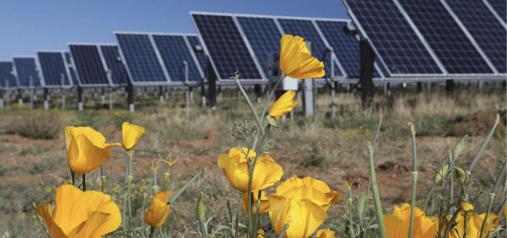Solar power has become a ray of hope for sustainable energy solutions across the vast plains of Africa, where sunshine is abundant. When one considers the conversion of the sun into electricity within the African environment, one discovers a story of creativity, difficulties, and the revolutionary possibilities of renewable energy. This piece explores the complex network of variables that influence solar energy use in Africa, emphasizing the achievements and the challenges that still need to be overcome.

Solar Technology Adaptation
One of the key elements in the solar africa power equation is the adaptation of cutting-edge solar technologies. Africa has witnessed a remarkable shift from traditional energy sources to solar power, with advancements in photovoltaic technology leading the way. Solar panels, composed of semiconductor materials, convert sunlight into electricity through the photovoltaic effect. The adaptability of this technology to diverse geographical and climatic conditions makes it a fitting choice for the African continent.
Off-Grid Solutions for Rural Electrification
Providing energy to remote and rural locations where typical grid infrastructure is impracticable is difficult in many parts of Africa. Off-grid solar systems are a revolutionary approach to solving this problem. Through light, healthcare, and education, photovoltaic-powered mini-grids and solar household systems enable off-grid populations to access energy and improve their quality of life. Even the most isolated areas of the continent may profit from clean and sustainable energy because of the decentralized nature of these solutions.
Economic Viability and Job Creation
Beyond concerns for the environment, Africa is adopting solar power because it offers financial prospects. From small-scale installations to massive solar farms, the construction of solar systems generates jobs in manufacture, installation, and maintenance. Local economies gain when both qualified and unskilled persons discover employment possibilities inside the expanding solar sector. The potential for economic growth throughout the continent increases with the need for solar energy.
Government Policies and Support
The actions of its governments significantly influence the adoption of solar power in Africa. Numerous nations have implemented regulations to encourage the solar industry's expansion after realizing how important it is to switch to renewable energy. Feed-in tariffs, tax breaks, and joint ventures with foreign organizations are some strategies aimed at financing and executing massive solar projects. Encouraging private investments and guaranteeing the sustainability of solar ventures require the government's backing.

Conclusion
Africa's path from sunshine to electricity is a complex tale of advancement and hope. A story of positive transformation is shaped by the adoption of off-grid alternatives, solar technology, and the financial gains made by the solar business. Governments are crucial in determining rules and offering assistance, so there is a lot of room for the solar industry in Africa to expand.
While challenges persist, strides in overcoming infrastructural barriers demonstrate African nations' resilience and determination to harness the sun's power for a brighter future. Solar power continues to illuminate homes, power businesses, and drive economic development across the continent. It symbolizes Africa's commitment to sustainable and resilient energy solutions. From sunlight to electricity, the journey in Africa is not just about meeting energy needs but about fostering a transformation that uplifts communities and contributes to a greener, more sustainable planet.
